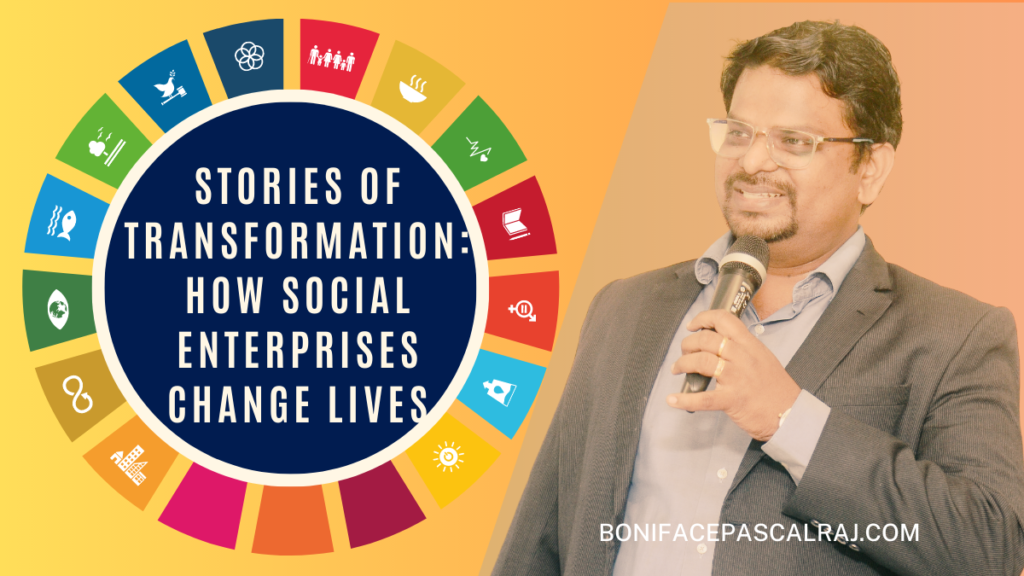There are individuals who believe that business has the potential to be a force for good and to transform the world for the better. A new business model that combines social impact and financial feasibility is what they envision. This is the story of the social enterprise business model, which is exemplified by outstanding companies like Grameen Bank, TOMS, The Better India, and Ben & Jerry’s.
The social enterprise business model incorporates the notion that organisations can work towards two goals at once: bringing about social or environmental change and producing long-term revenue streams. Social enterprises, in contrast with traditional nonprofit organisations, operate with an entrepreneurial spirit and employ cutting-edge strategies to address societal concerns.
Let’s begin our adventure with TOMS, a shoe company that revolutionised the market with its “One for One” guiding principle. TOMS distributes a pair of shoes to a child in need for each pair that is purchased. Blake Mycoskie, the company’s creator, understood the connection between poverty and a lack of footwear and set out to change it. Along with addressing a significant social issue, TOMS created a profitable business strategy with a clear social mission.
Next, we have The Better India—a media platform dedicated to raising awareness and promoting solutions for societal, economic, and environmental challenges. By leveraging the power of storytelling, The Better India amplifies voices, shares inspiring stories, and connects changemakers with a broader audience. Through events, social media, and content development, they not only earn money but also drive positive change by encouraging sustainable practices and social innovation.
Then there is the well-known ice cream manufacturer, Ben & Jerry’s, whose business practices include social and environmental responsibility. Ben & Jerry’s has established itself as a shining example of how companies can incorporate purpose into every part of their operations thanks to its dedication to fair trade, sustainable sourcing, and community improvement. They have gained a devoted following and established themselves as potent change agents by producing great ice cream while promoting social justice and environmental sustainability.
Lastly, let’s look into the fascinating story of Grameen Bank—a microfinance institution founded by Muhammad Yunus. In order for those living in poverty to escape their cycle of poverty, Grameen Bank understood that they needed access to credit. Grameen Bank gave countless people the opportunity to launch their own businesses and improve their economic situations by lending microloans, primarily to women in rural areas of Bangladesh. Financial services were shown to be a catalyst for social change by this ground-breaking model, which was based on trust and cooperation.
Benefits
Benefits of the Social Enterprise Business Model:
1. Social Impact: Social enterprises work to make a good difference in society or the environment, frequently by tackling problems like poverty, inequality, and climate change. As a result, customers, investors, and staff may feel strongly motivated.
2. Innovative approaches: Social enterprises frequently have distinctive viewpoints and creative approaches to solving social and environmental issues, which can set them apart from conventional for-profit companies.
3. Access to finance: Impact investors, government grants, and other sources of social capital are frequently sources of funding for social businesses, which can give them the money they need to expand and scale their operations.
4. Community involvement: Social enterprises frequently collaborate closely with the populations they serve, which may foster more fidelity, confidence, and support.
5. Empowerment and inclusivity: These businesses frequently place a strong emphasis on fostering social inclusion, giving underrepresented groups opportunities, and empowering marginalized populations.
6. Financial sustainability: Social enterprises can attain financial sustainability and lessen reliance on outside financing sources by producing their own revenue.
Limitations
Limitations of the Social Enterprise Business Model:
1. Limited geographic reach and market size: Social enterprises sometimes focus on particular demographic groups, which can restrict their potential market size and growth.
2. Regulatory obstacles: Social enterprises may run into regulatory obstacles and limitations that affect their ability to function, particularly in sectors with a lot of regulation.
3. Retaining talent: If social companies are unable to offer competitive salaries and benefits, they may have trouble attracting and retaining talent.
4. Balancing social and financial goals: The pursuit of both goals necessitates rigorous management and decision-making, making it difficult to strike a balance between social effect and financial feasibility.
5. Scalability: It can be challenging to increase the impact of social enterprises while simultaneously increasing operations, expanding the number of people served, and preserving financial viability.
Despite these limitations, the social enterprise business model still motivates and brings about significant societal change. Social enterprises show how businesses can be a strong force in tackling social and environmental concerns by using the power of business for the greater good.
As we conclude this blog post, I ask you to reflect on the incredible stories of TOMS, The Better India, Ben & Jerry’s, and Grameen Bank. They are organizations that are motivated by purpose, innovation, and a dedication to having a positive impact; they are the epitome of the social enterprise business model.
Let’s be motivated by their experiences and think about how our own businesses may help us make the world a better place. Every one of us can contribute to creating a future that is more sustainable and inclusive, whether we are aspiring business owners, socially conscious consumers, or change agents.
Comment below with your ideas, stories, or examples of social enterprises that have motivated you. Let’s have a discussion and share our knowledge as we work to realize the full potential of business as a force for good.
Stay tuned for our upcoming blog article when we’ll continue discussing the various and significant business models that are now influencing entrepreneurship. Let’s continue to release social influence and promote transformation together.

